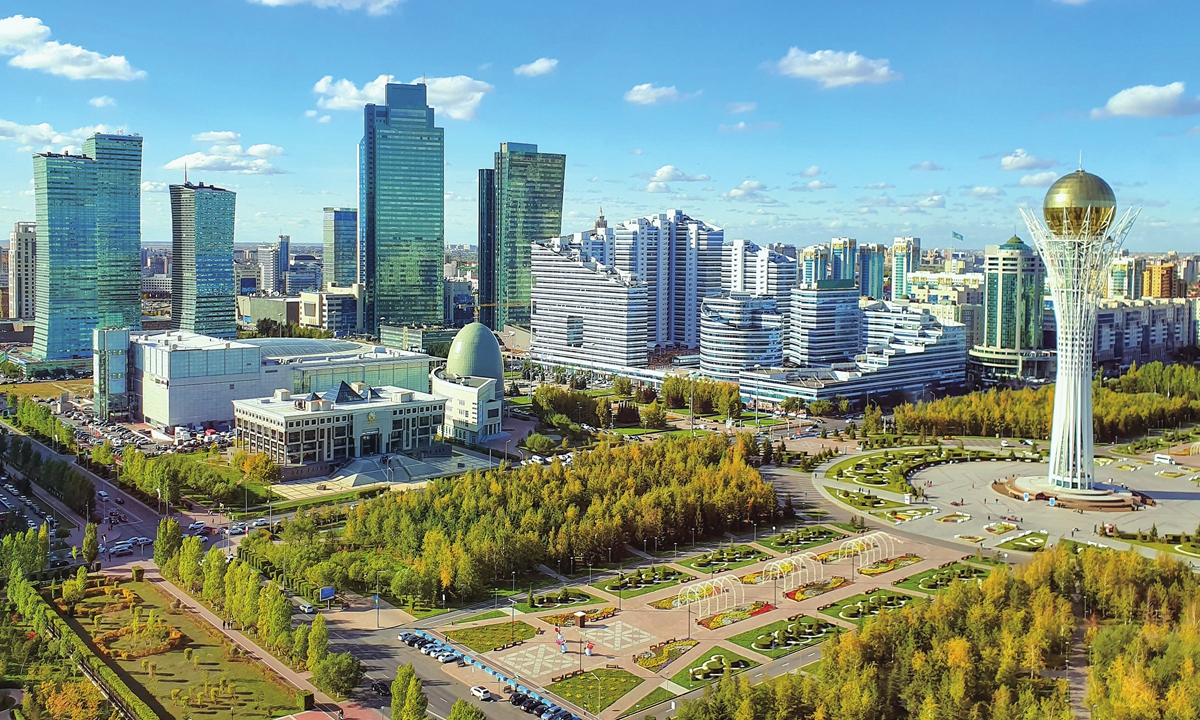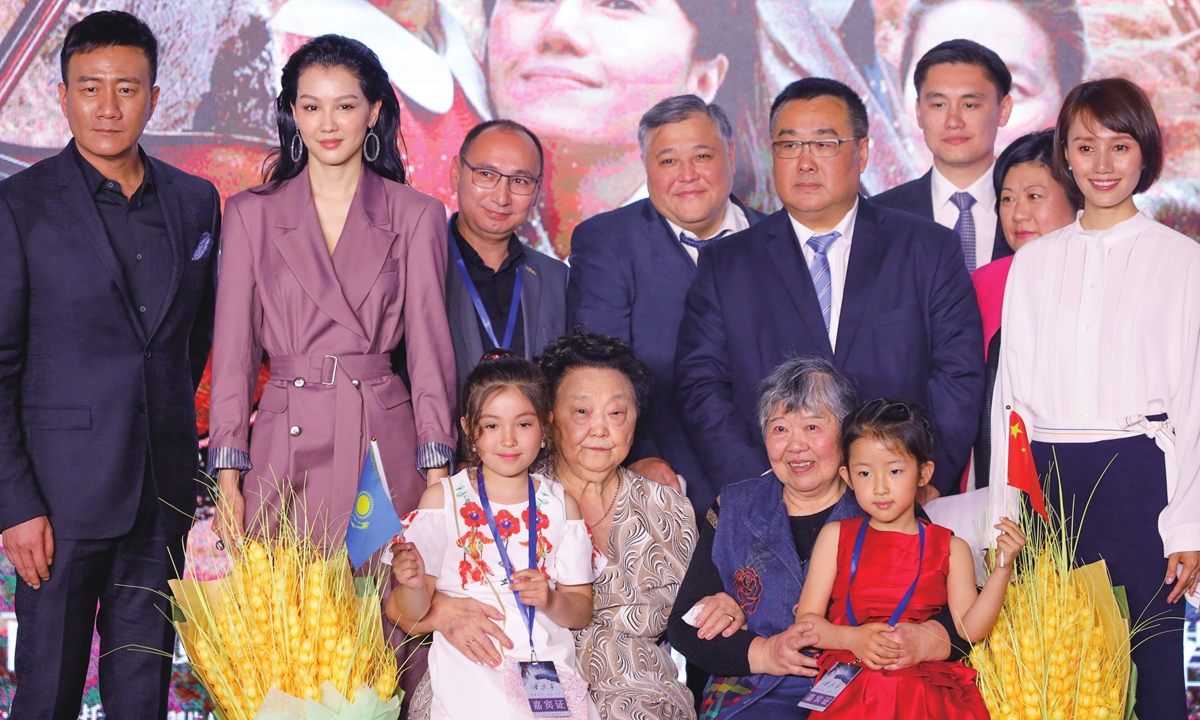
The view of Astana Photo: VCG
"Over 80 years ago, Chinese musician Xian Xinghai and Kazakh composer Bakhytzhan Baikadamov met and came to know each other in Almaty. They soon became bosom friends and devoted brothers despite their different nationalities," Chinese President Xi Jinping remarked in a signed article published on Kazakh media on Tuesday ahead of his state visit to Kazakhstan.
Xian Xinghai, a household name in China, is best known for his Yellow River Cantata, a patriotic work that inspired scores of Chinese people during the Chinese People's War of Resistance Against Japanese Aggression (1931-45). The piece is also known to Western orchestras. At the special request of then US president Richard Nixon in the early 1970s, the Philadelphia Orchestra was the first US orchestra to perform in China. During their historic trip to the country in 1973, the orchestra performed the Yellow River Piano Concerto, which was based on the cantata.
Although Xian was celebrated as one of China's greatest musicians, few people are aware that in the early 1940s, during the final years of his life, he was stranded in Kazakhstan while attempting to return to China from Russia. That was how he met and became a devoted brother to Baikadamov.

The view of Beijing's Central Business District Photo: VCG
Friendship transcends time President Xi has referenced their touching friendship on different occasions. "The heart-warming story of Xian Xinghai and Bakhtzhan Baikadamov, two great composers in our respective countries, has been turned into a movie," he has said in a signed article published on a Kazakh newspaper in 2022.
The choice to make the film was inspired by Xi's speech delivered at Kazakhstan's Nazarbayev University in 2013, Shen Jian, executive producer of the film, told the Global Times. During his speech, Xi said that at a time when Xian was worn down by poverty and illness and had no one to turn to, Kazakh composer Baikadamov took care of Xian and provided him with the comforts of a home.
Released in 2019, the film is the first co-production between studios in China and Kazakhstan. With nearly 20,000 people participating in the production that involved shooting locations in three different countries: China, Russia, and Kazakhstan. The movie took the team more than five years to complete, introduced Shen.
As depicted in the movie, Xian was able to concentrate on music thanks to the generous help of Baikadamov and his family. Inspired by the Kazakh people, Xian created many works during his time in Kazakhstan, contributing to the country's cultural inheritance.
"We owe the people of Kazakhstan for this story, since they saved our country's greatest musician during the war," Shen told the Global Times.
In the southwest of Almaty, the Xian Xinghai Street and Baikadamov Street are adjacent to each other. On one end of Xian Xinghai Street stands a monument to Xian Xinghai, engraved with his life story.
In Xian's hometown, Panyu in South China's Guangdong Province, there is also a road dedicated to the friendship between the two composers. The road is decorated with signs of red musical notes, while nearby stand busts of Baikadamov and Xian side by side.

The media conference of The Composer, the frst movie co-prodiced by China and Kazakhstan, in Beijing in 2019 Photo: Li Hao/GT
Moving forward togetherBeyond the scope of arts, the people-to-people exchanges between China and Kazakhstan are also significant in various fields such as education and tourism.
The Beijing Language and Culture University (BLCU) inaugurated its branch campus in Astana, Kazakhstan on Wednesday, witnessed by President Xi and Kazakh President Kassym-Jomart Tokayev.
"It means that there are more requests and much interest in getting closer to China from Kazakh people, especially the youth. The schools building a lingual bridge are great channels for young people," Chen Yurong, a researcher at the China Institute of International Studies, told the Global Times on Thursday.
Zhang Yiwu, a Chinese language and literature professor at Peking University, is also of the firm belief that education is one of the best ways to promote cultural exchange between two countries, and as the remarkable development of bilateral relations advances, the platforms will grow stronger.
"The second Luban Workshop is set to open in Kazakhstan. The China tourism year will be held in the country. All of these events attest that another golden 30 years of bilateral relations have already begun," said Chen.
From the ancient Silk Road to the devoted friendship between Xian and Baikadamov, to 32 years ago, when China was among the first countries to recognize Kazakhstan's independence, the history of China-Kazakhstan friendly exchanges is a strong testament to the fact that the development of the bilateral relationship between the two countries conforms to the trend of history and that of the times.
Today, while the long-cherished traditional bonds between China and Kazakhstan have been passed down from generation to generation, the peoples of the two nations continue writing new chapters of further deepening friendship.






